|
| NEWS |
 |
| SIPRI launches videos and report on climate justice and violence in Latin America |
|
This month, SIPRI and its partner, the Friedrich-Ebert-Stiftung (FES), launched a new series of videos and a report on environmental and climate justice and the dynamics of violence in Latin America. The report, available in English and Spanish, presents the collective perspective of the SIPRI–FES Latin American Regional Working Group, a group of 20 climate and environmental experts from 10 Latin American countries, on issues of climate and environmental justice and food security. The report is accompanied by a series of interviews with four working group members, who discuss addressing the challenges of environmental security in the region from their individual perspectives.
|
|
|
Read more | Read the report | Watch the interviews
|
|
|
 |
| SIPRI provides analysis on navigating space security |
|
SIPRI launched a new SIPRI Conversations video earlier this month that explains the role of space systems in nuclear deterrence. The video features Nivedita Raju and Dr Tytti Erästö, experts from the SIPRI Weapons of Mass Destruction (WMD) Programme, who explain why real and perceived threats to space systems could serve as catalysts for nuclear escalation. To coincide with the video, SIPRI gathered its latest analysis on developments in space, including on the rise of new capabilities targeting space assets, which have increased the domain’s relevance to peace and security.
|
|
|
Read more | Watch the SIPRI Conversations video
|
|
|
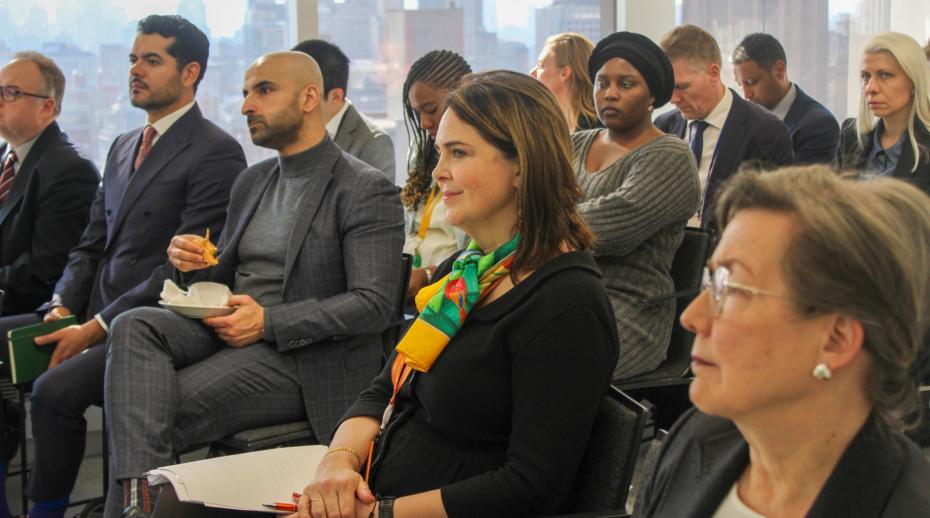 |
| SIPRI launches landmark report in New York |
|
On 9 February, SIPRI launched a report that looks at how multilateral peace operations relate to non-traditional security challenges. The types of challenges examined in the report are terrorism and violent extremism, organized crime, irregular migration and human trafficking, environmental degradation and resource scarcity, and epidemics and pandemics. These challenges are often of great relevance to the work of peace operations, but such missions may not be the right tool for addressing them. At the event, Dr Jaïr van der Lijn, Director of the SIPRI Peace Operations and Conflict Management Programme and author of the report, presented the findings to a panel of experts.
|
|
|
Read more | Read the report
|
|
|
 |
| SIPRI holds discussions at 2024 Munich Security Conference |
|
SIPRI attended and co-hosted two side events at this year’s Munich Security Conference. On 17 February, SIPRI co-hosted a lunchtime roundtable with International Crisis Group to shed light on the changing landscape of international conflict resolution, the crisis of diplomacy and the obstacles to achieving sustainable peace. On 18 February, SIPRI co-hosted a breakfast discussion with the Center for International Peace Operations on the future of multilateral peace operations in Africa.
|
|
|
Read more
|
|
|
 |
| SIPRI to co-host 2024 Armament and Disarmament Summer School |
|
SIPRI and the Alva Myrdal Centre for Nuclear Disarmament (AMC) at Uppsala University are pleased to host the 2024 Armament and Disarmament Summer School on 26–30 August 2024, in cooperation with the Odesa Center for Nonproliferation. The summer school is an annual fixture within disarmament education. Structured as both a course and a networking opportunity, the summer school is focused at young and emerging professionals in the fields of disarmament, non-proliferation and arms control.
|
|
|
Read more
|
|
|
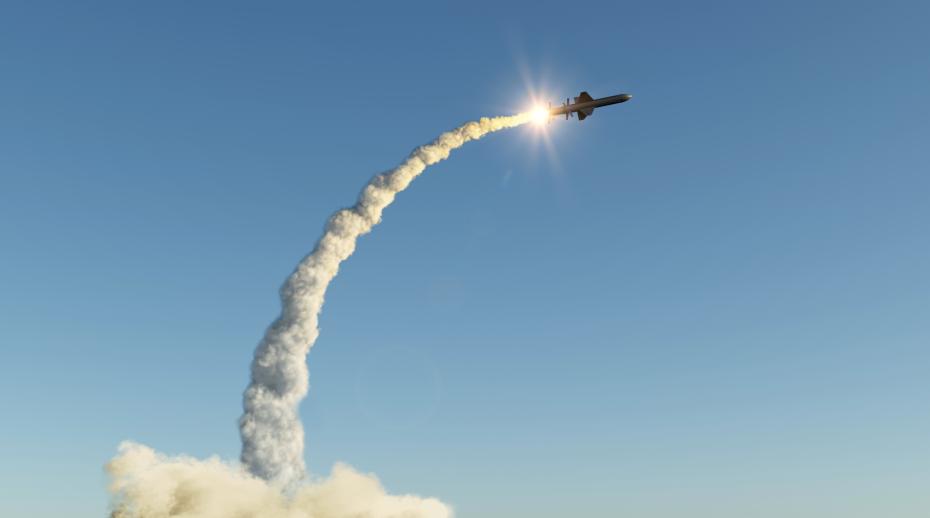 |
| SIPRI and Alva Myrdal Centre release compendium on nuclear disarmament |
|
SIPRI and the AMC recently released a compendium of working papers on nuclear disarmament. Expanding Perspectives on Nuclear Disarmament features contributions from AMC’s working group on nuclear disarmament in policy and international law. The collection also includes papers from students and young professionals following an open call by SIPRI early last year. The compendium represents an effort to expand the current understanding of nuclear disarmament, with a view to reinvigorate efforts towards a world free of nuclear weapons.
|
|
|
Read more | Read the compendium
|
|
|
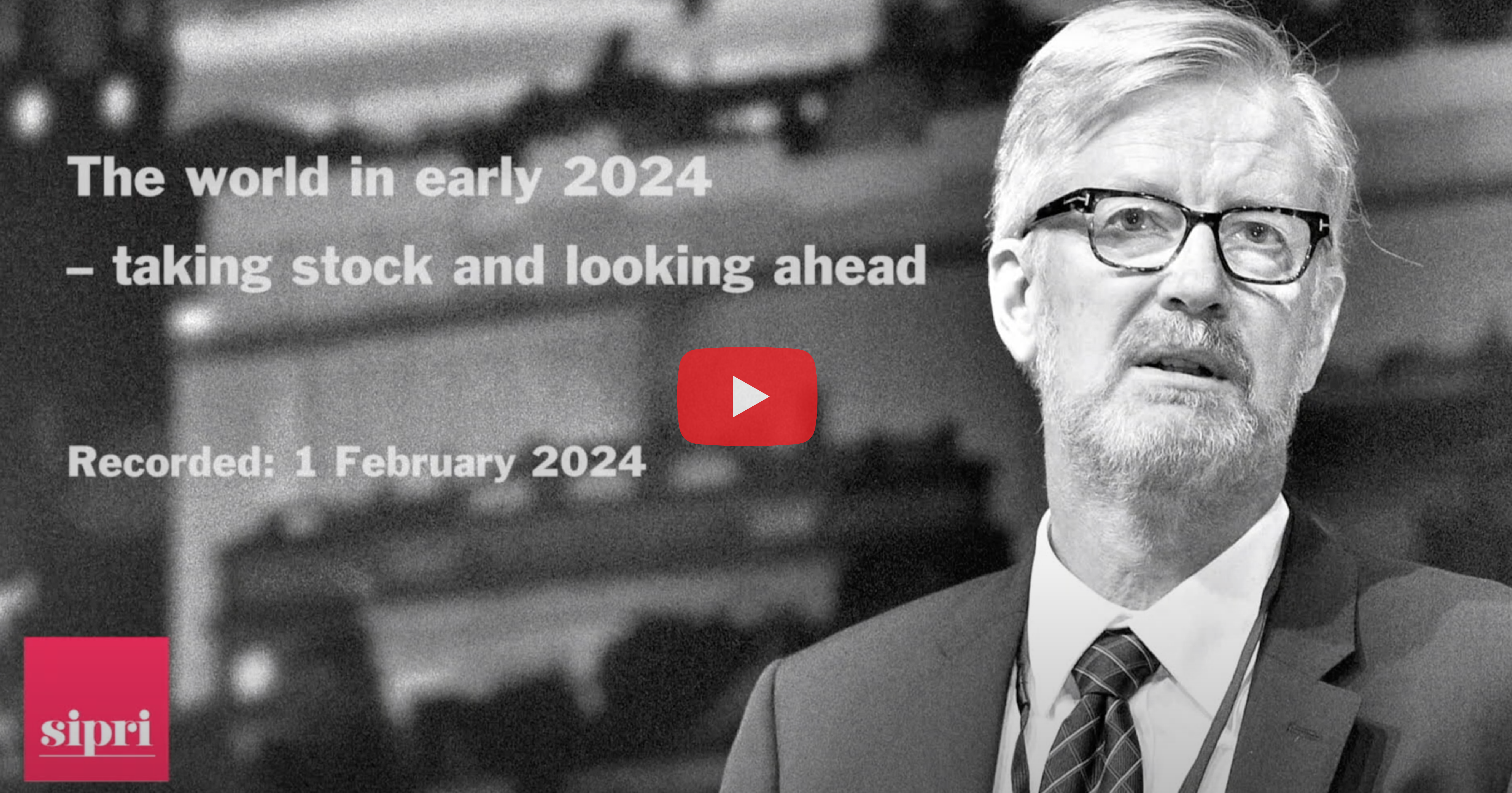 |
| Peace Points: The world in early 2024—Taking stock and looking ahead |
|
In the latest episode of Peace Points, SIPRI Director Dan Smith reflects on the state of the world in 2024. The world system is today in disarray and finding it difficult to manage conflict. As well as the war in Gaza and the Russia–Ukraine war, there are over 50 armed conflicts worldwide. Smith also talks about the interlinkages between the environment and security, and the opportunities for cooperation that could arise from joint challenges such as the environmental crisis.
|
|
|
Watch the video | Access the Peace Points video playlist
|
|
|
|
|
|
 |
| External outlets |
|
SIPRI experts were recently featured in these external outlets:
|
|
|
|
| UPCOMING EVENTS |
| |
| 6–8 May 2024 |
| 2024 Stockholm Forum on Peace and Development |
|
The 2024 Stockholm Forum on Peace and Development will be held on 6–8 May on the theme ‘On the Edge: Navigating a Changing World’.
|
|
Read more
|
| |
| 26–30 August 2024 |
| 2024 Armament and Disarmament Summer School |
|
The 2024 Armament and Disarmament Summer School will be held on 26–30 August.
|
|
Read more
|
|
|
| RECENT EVENTS |
| |
| 14 February 2024 |
| SIPRI co-hosts roundtable on private military companies |
|
SIPRI co-convened a roundtable with the United Nations Interregional Crime and Justice Research Institute on the relationship between private military companies, crime and terrorism, and the overarching effects of these relationships on peace and security.
|
|
Read more
|
|
| |
| 22–23 January 2024 |
| SIPRI hosts exercise on autonomous weapons systems |
|
SIPRI hosted an in-person scenario exercise to discuss the limits and requirements for the development and use of autonomous weapons systems (AWS). The scenario exercise gathered 25 military lawyers and government policy advisors from around the world, as well as select experts from civil society, academia and the International Committee of the Red Cross.
|
|
Read more
|
|
| |
| 16–17 January 2024 |
| SIPRI hosts workshop on space–nuclear nexus |
|
SIPRI organized an in-person workshop entitled ‘Unpacking Risks at the Space–Nuclear Nexus’. The SIPRI WMD Programme hosted the workshop, which brought together experts and policymakers from the space and nuclear communities to discuss the relationship between the two domains.
|
|
Read more
|
|
|
| STAFF NEWS |
Current vacancies:
- Researcher, Food, Peace and Security Programme (Closing date: 28 February)
|
|
Read more
|
|
|
|
|
| PUBLICATIONS |
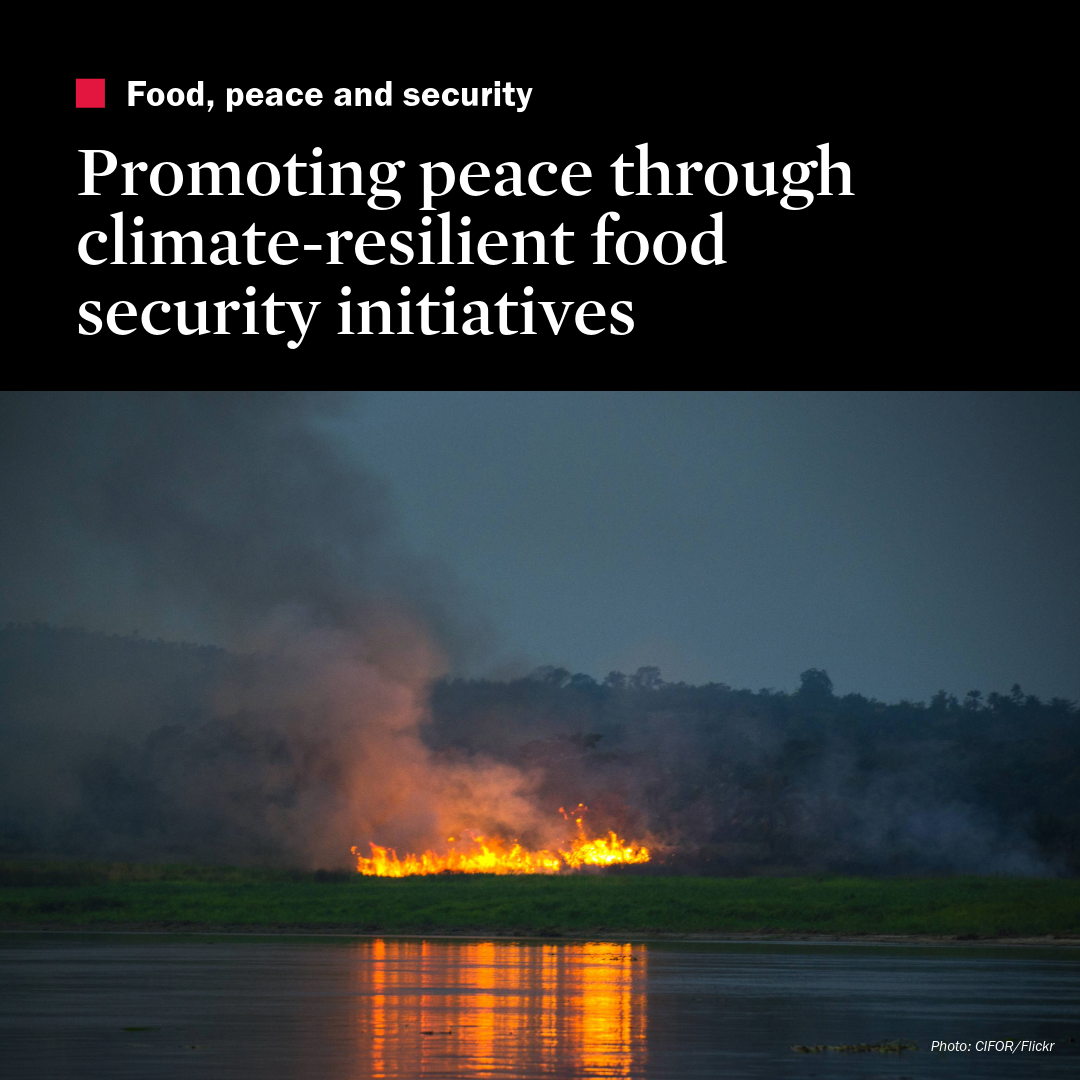 |
| Promoting Peace through Climate-resilient Food Security Initiatives |
|
This SIPRI Research Policy Paper examines the interconnectedness of food insecurity, climate and environmental pressures, and violent conflict, proposing strategies to enhance peacebuilding within integrated climate-resilient food security interventions. It asserts that collaborative, multisectoral programming among humanitarian, development and peacebuilding stakeholders is essential to disrupt vicious circles of food insecurity, climate challenges and conflict. Such programming should not only incorporate activities from the food security, climate adaptation and peacebuilding fields, but also seize opportunities to bolster the sustainability of food systems.
|
|
Read the SIPRI Research Policy Paper
|
|
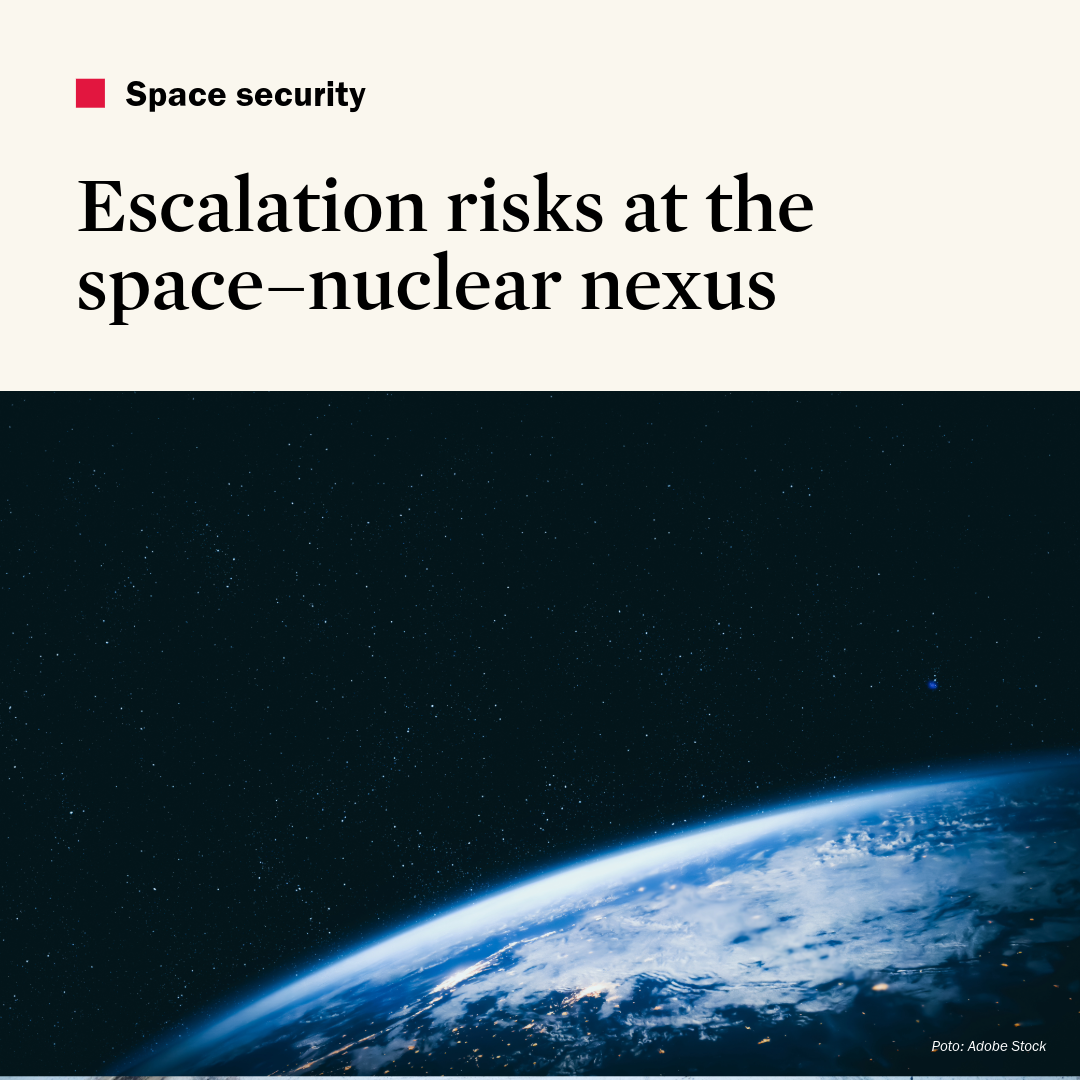 |
| Escalation Risks at the Space–Nuclear Nexus |
|
Space systems are essential for nuclear and non-nuclear missions for China, Russia and the United States, with the space domain central in their national security strategies. Amid the strategic competition and rivalry between the three states, their threat perceptions exhibit unprecedented levels of worst-case scenario thinking, signalling a preparedness to respond with force in case of attacks or incidents involving space systems. Escalation risks in outer space, even possibly extending to the use of nuclear weapons, thus appear to be growing. Additional space–nuclear-related risk reduction measures are vital. This paper proposes measures at the multilateral, bilateral and unilateral levels for China, Russia and the USA to consider.
|
|
Read the SIPRI Research Policy Paper
|
|
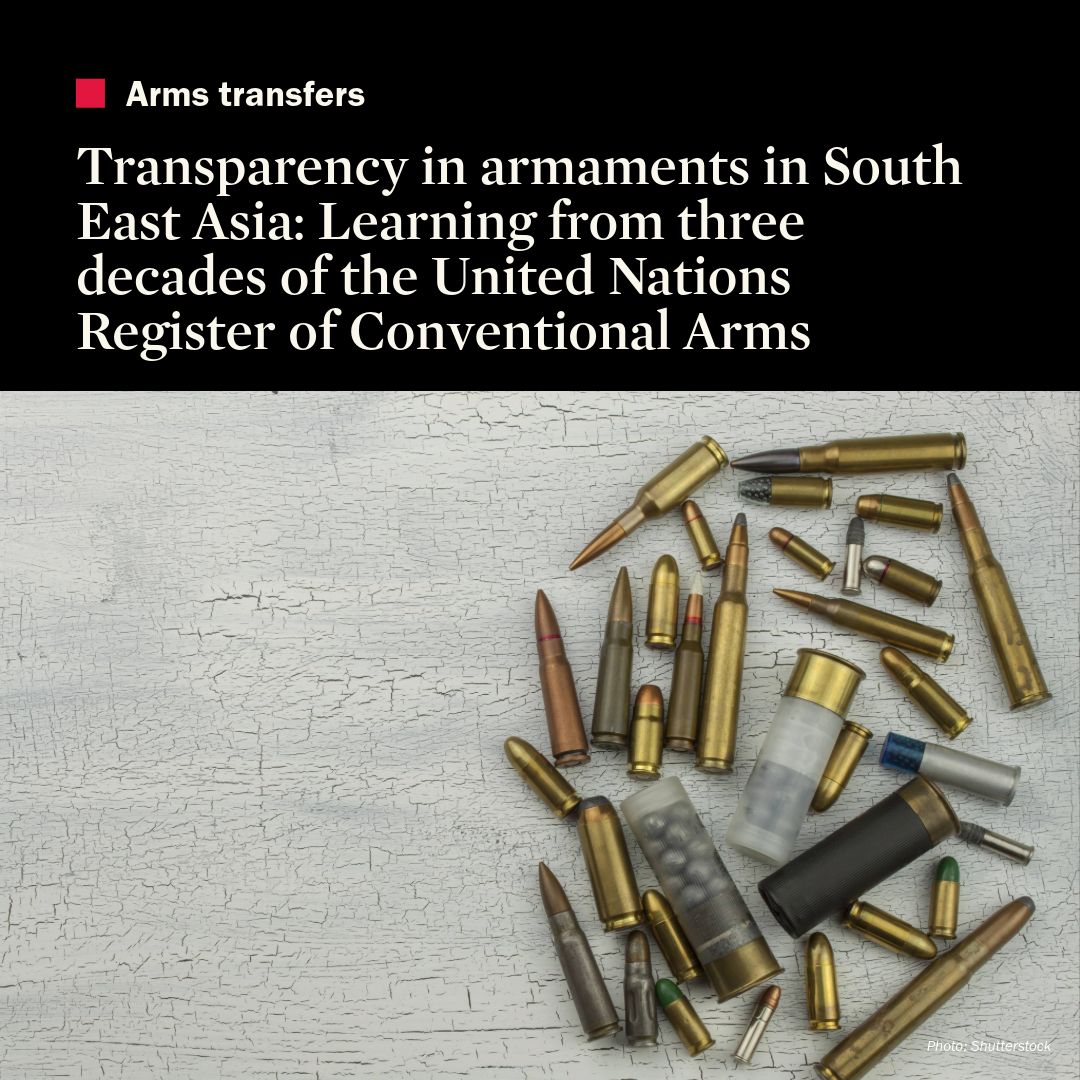 |
| Transparency in Armaments in South East Asia: Learning from Three Decades of the United Nations Register of Conventional Arms |
|
The UN Register of Conventional Arms (UNROCA) was established in 1991 as a transparency mechanism with the main goal of preventing potentially destabilizing build-ups of armaments. UNROCA reporting is particularly relevant to South East Asian states, and they are willing to participate. However, after high reporting rates in UNROCA’s first two decades, these states’ reporting rates have been low in recent years. This paper looks at past reporting patterns of the 11 states of the region and examines the challenges that they have faced in reporting. Findings based on the experience of these states are then used to formulate recommendations on how to improve the future rate and quality of reporting.
|
|
Read the SIPRI Research Policy Paper
|
|
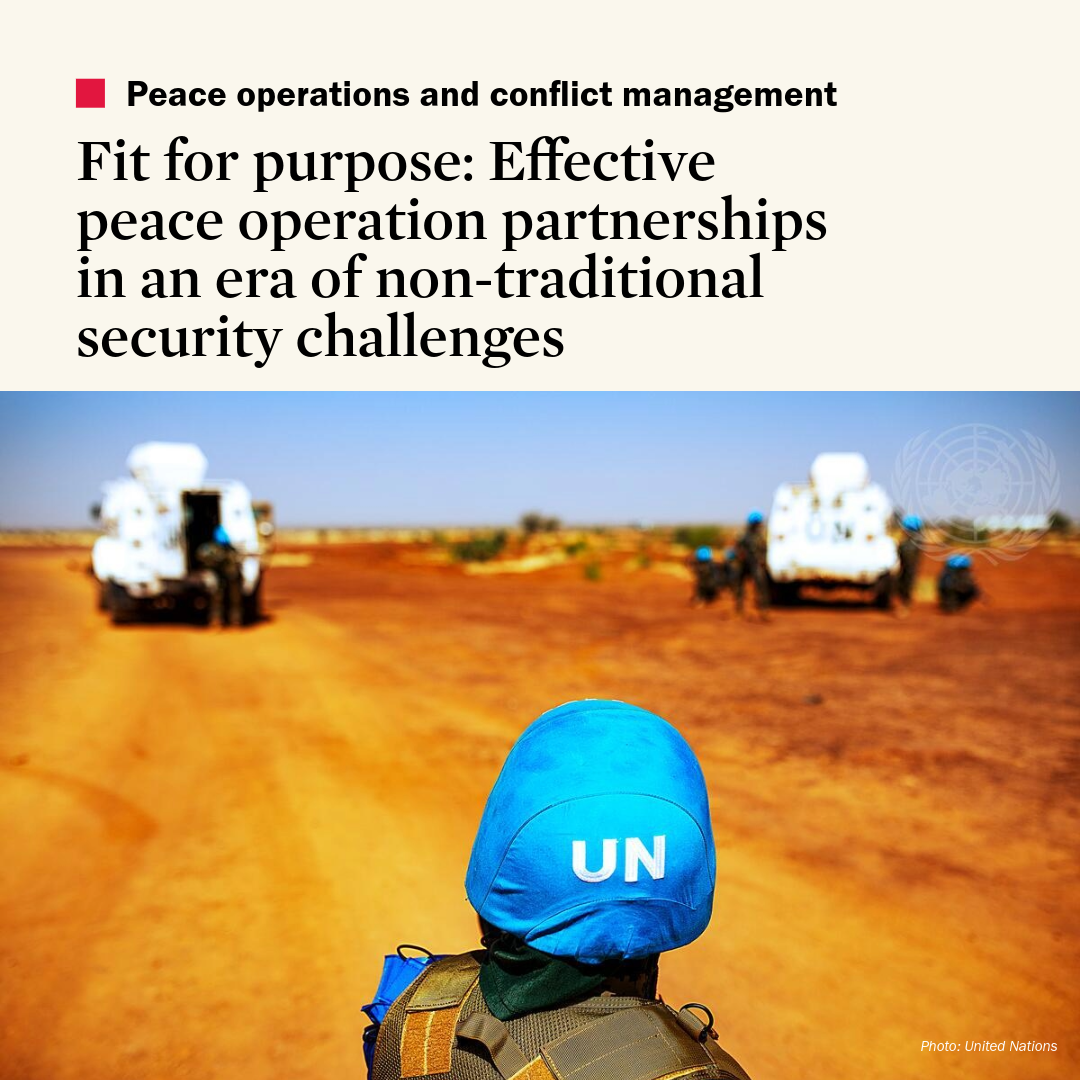 |
| Fit For Purpose: Effective Peace Operation Partnerships in an Era of Non-Traditional Security Challenges |
|
The third phase of the New Geopolitics of Peace Operations initiative looks at how multilateral peace operations relate to non-traditional security challenges: terrorism and violent extremism, organized crime, irregular migration and human trafficking, environmental degradation and resource scarcity, and epidemics and pandemics. These challenges are often of great relevance to the work of peace operations, but such missions may not be the right tool for addressing them. Based on dialogue meetings, interviews and a literature and document review, the study examines the work of multilateral peace operations on non-traditional security challenges, the advantages and disadvantages of their involvement and how operations collaborate, cooperate and coordinate with the various other actors involved.
|
|
Read the SIPRI Report
|
|
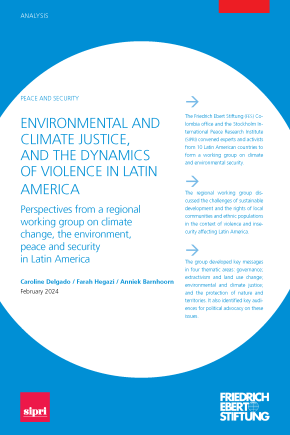 |
| Environmental and Climate Justice, and the Dynamics of Violence in Latin America: Perspectives from a Regional Working Group on Climate Change, the Environment, Peace and Security in Latin America |
|
This report presents the collective perspective of the Latin American Regional Working Group—which was initiated by SIPRI and the FES Colombia office in 2022—on the pressing issues surrounding climate and environmental justice, as well as food security, that affect the region as a whole, but whose impact is most strongly felt at the local level. The working group identified key messages for a range of target audiences. What they all share is a call to regional organizations to assess and monitor the scale of violations and to penalize violators. They also call for the existing legal framework for environmental protection to be implemented.
|
|
Read the report
|
|
|
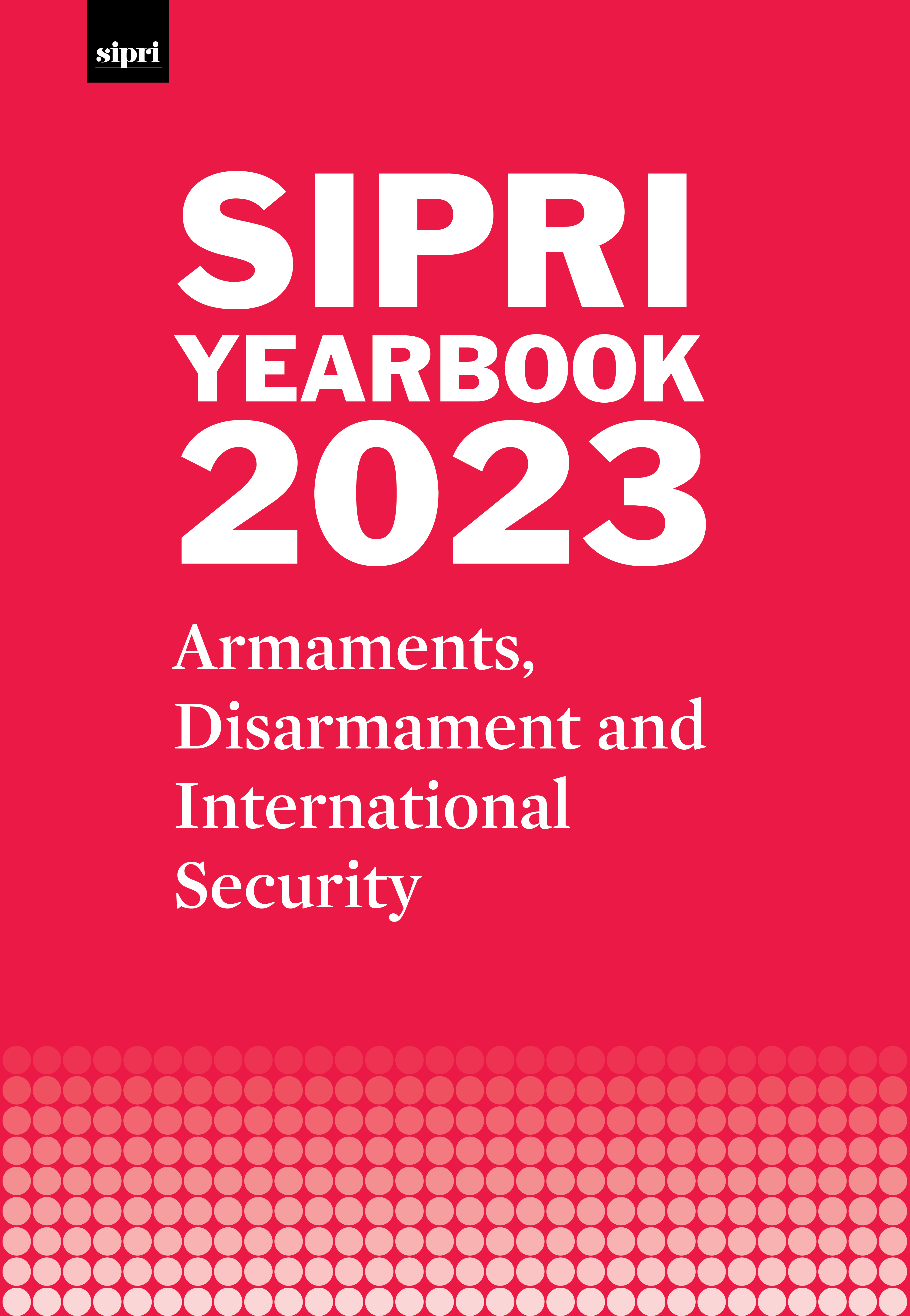 |
| SIPRI Yearbook 2023 |
SIPRI Yearbook 2023 presents a combination of original data in areas such as world military expenditure, international arms transfers, arms production, nuclear forces, armed conflicts and multilateral peace operations with state-of-the-art analysis of important aspects of arms control, peace and international security. In addition to its detailed coverage of nuclear arms control and non-proliferation issues, the latest edition of the SIPRI Yearbook includes
- insight on developments in conventional arms control in 2022;
- regional overviews of armed conflicts and conflict management;
- in-depth data and discussion on military expenditure, international arms transfers and arms production; and
- comprehensive coverage of efforts to counter chemical and biological security threats.
|
|
Browse the contents page | Download the summary (PDF) | Download the sample chapter on world nuclear forces (PDF) | Order SIPRI Yearbook 2023
|
|
|
| |
|
|
|
|
|
|
|
|